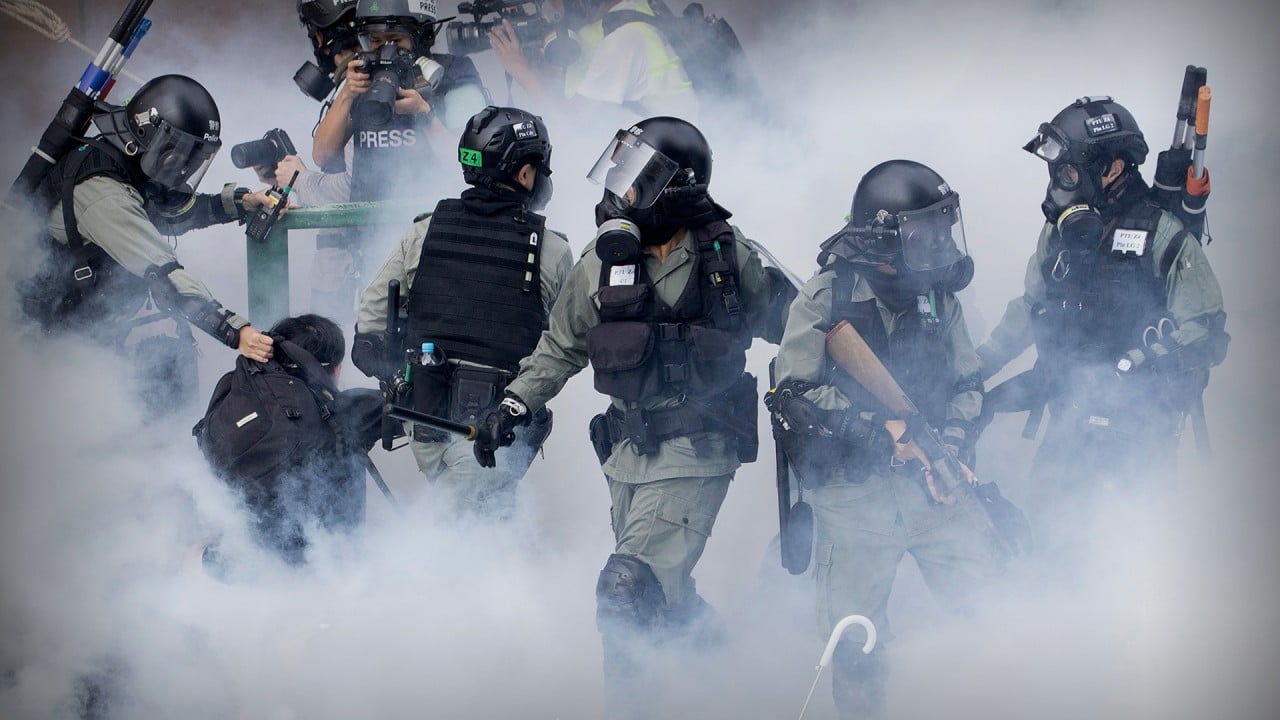
Hong Kong group calls for ‘bigger debate’ on expanding rehabilitation law to help young protesters move on
- Project Change volunteers say young protesters have experienced difficulties looking for jobs or school places because of pending trials or criminal records
- Call for greater discussion comes at a time when the first batch of jailed protesters returns to society, triggering concerns about stigmatisation, acceptance
Volunteers from Project Change said many young protesters they had come across over the past two years had experienced difficulties looking for jobs or school places because of their pending cases or criminal records.
The call for greater discussion also came at a time when the first batch of jailed protesters, having served out their term, gradually returned to society, triggering concerns about stigmatisation and how society should accept them.

“The community should have a bigger debate about this,” Sung Yun-wing, treasurer of Project Change, said during a recent interview with the press.
Sung, who is also an adjunct economics professor at Chinese University, pointed to the current legal scheme governing criminal records.
Under the Rehabilitation of Offenders Ordinance, first-time offenders sentenced to no more than three months’ imprisonment, or fined less than HK$10,000 (US$1,280), can have their criminal records written off, so long as they do not commit further crimes within three years. The record will be treated as “spent”.
But many protesters accused of taking part in unlawful assemblies or riots have faced more serious penalties than that of petty crimes the rehabilitation scheme is intended for.
According to Sung, similar rehabilitation schemes exist in foreign jurisdictions and they sometimes cover a wider scope than the conditions Hong Kong has set.
“Should it be part of our consideration?” he asked.
‘Apolitical’ NGO supports young people arrested over Hong Kong protests
Formed in 2020, Project Change has since offered legal support, as well as life-planning and counselling services, to 67 youngsters who were referred to the initiative by lawyers, law enforcement officers or through word of mouth.
Among the 67 are secondary pupils looking for new schools after being arrested or prosecuted over the protests, and university students and graduates hunting for jobs and internship opportunities, as they struggle to move on.
Of the 10,276 people arrested over the 2019 protests, 4,010 were students, out of which 1,125 had been prosecuted, according to police.
Founder Pauline Sung Chan Po-lin appealed to the public to avoid stigmatising the young protesters and show understanding.
Citing students arrested outside the clashes at Polytechnic University in late 2019 – one of the most intense confrontations during the unrest – she said some might have turned up merely to show their support, but were instead arrested and charged with rioting.
“Their original intent was to pursue democracy … They didn’t know they would be breaking the law simply by being there. One has to consider whether they intended to break the law in the first place,” she said.
She also urged Chief Executive Carrie Lam Cheng Yuet-ngor to do more, noting that the city leader’s policy address last year had not touched sufficiently on the rehabilitation of this group of youngsters.

Among the young protesters Project Change has helped is a secondary school student whose plan to study abroad for university was hampered by his criminal record and poor English skills. The group helped him engage an English tutor and a retired magistrate, who wrote a reference letter for him, Sung said. His application was successful.
A third-year university student told the Post that finding a job was already challenging even before he went on trial. The 21-year-old, who is facing a charge of taking part in an unlawful assembly, said he had decided to defer his course this academic year because his trial could commence any time soon.
He also encountered difficulties at job interviews in his search for a part-time job.
“I am still waiting for my trial, so at one point I would not be able to attend work. They will ask you why you have to stop working after a certain day and I don’t know what to say,” he said.
Priest lawmaker hopes to give jailed Hong Kong protesters a second chance
Through Project Change’s network, the social science student managed to get an internship with a non-government organisation and work as a research assistant for a university professor from his discipline.
The student said he was aware that certain jobs, such as being a social worker, would be out of reach if he was convicted. “But at least, I get to boost my competitiveness for now,” he said.
Li Kin-man, principal of Salesians of Don Bosco Ng Siu Mui Secondary School, suggested greater collaboration between the Correctional Services Department (CSD), which is often tasked to look for new schools to take in released students, and the Education Bureau.
Li is best known for attempting to ease tensions among the young protesters at Polytechnic University during the 2019 protests.
He said the bureau had a team to help students who had been absent for a long time to find a new school, but the CSD had yet to tap such resources.

Project Change has also worked with the rehabilitation arms of the police force and the CSD.
Pauline Sung, the group’s founder, said their partnership started after police commissioner Raymond Siu Chak-yee approached them about a university student he was helping. Siu wanted to make sure the student in jail would be able to resume his studies following his release.
Through the group, Siu met the university management and appealed to them on the student’s behalf. The student was allowed to resume his studies.


